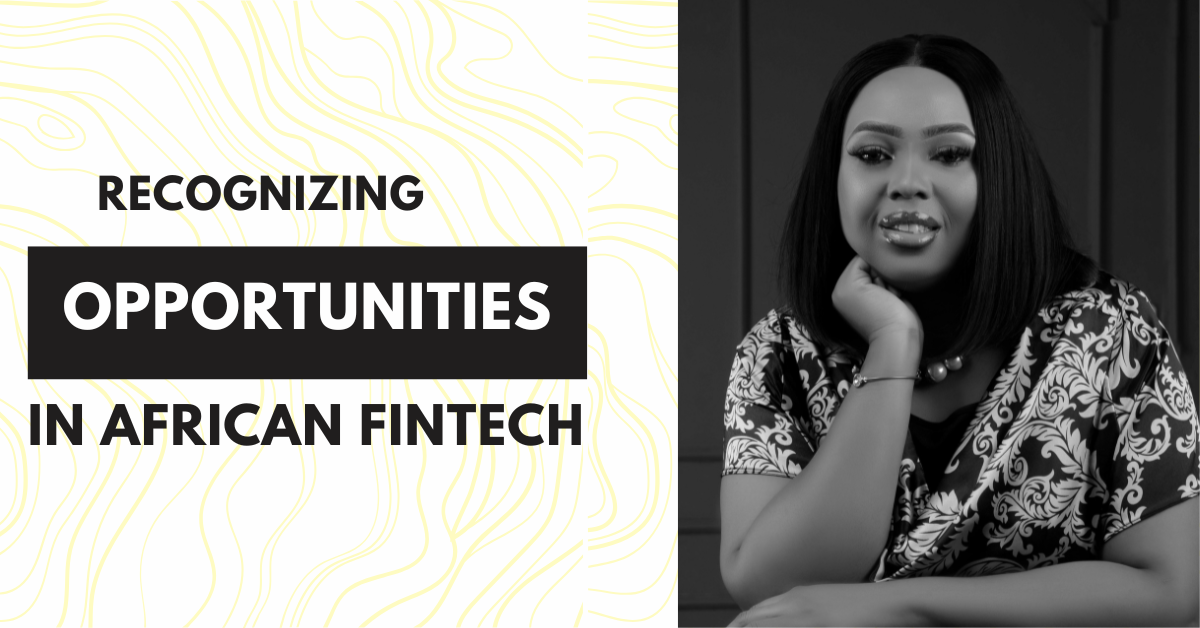Is African Fintech Saturated? Not Even Close.
“Do you think the fintech industry is saturated?”
That was the question a young professional at Nigeria LNG asked me last week while I was teaching a class on platform strategy and digital awareness. It’s a common fear among founders—Is there still room to build?
My answer? Not only is there room, but the biggest fintech opportunities are just getting started.
If you’re an aspiring fintech entrepreneur, you might feel stuck wondering:
- Will customers pay for this?
- Will investors fund me?
- Is this the right time to launch?
The truth is, success isn’t about having a great idea—it’s about recognizing the right opportunity.
In this post, I’ll show you:
- The difference between an idea and an opportunity
- Three high-potential fintech opportunities in Africa
- A roadmap to help you conceptualize your next big fintech venture
Great Idea vs. Great Opportunity: What’s the Difference?
Not every great idea turns into a great business. A true opportunity isn’t just exciting—it’s:
- Attractive – Solves a real, urgent problem
- Durable – Built on long-term trends, not hype
- Timely – Takes advantage of current market shifts
- Valuable – Can generate revenue and impact
The best founders don’t just invent—they recognize. They look at shifts in policy, technology, and consumer behavior to spot untapped opportunities.
Let’s break this down with real fintech opportunities happening right now.
3 Institutional Opportunities in African Fintech
1️⃣ Nigeria’s Open Banking Regulations → AI-Powered Personal Finance
The Shift:
In 2023, Nigeria’s Central Bank introduced open banking regulations—forcing banks to securely share data with fintechs and third-party providers.
The Opportunity:
Most people who try to budget, save, or invest struggle with discipline and tracking. What if AI could do it for them?
Imagine a personal finance app that:
- Analyzes spending habits using real-time bank data
- Sends smart nudges: “You’re on track for your savings goal!”
- Enables fractional investing—allowing low-income earners to invest small amounts
Investor Pitch:
“Open banking allows us to create AI-driven financial coaching that was impossible before. We’re not just a budgeting app—we’re a financial behavior change platform.”
2️⃣ Uganda’s Tightened Fintech Regulations → RegTech & Fraud Prevention
The Shift:
In 2020, Uganda’s central bank tightened fintech regulations, requiring strict KYC (Know Your Customer) and AML (Anti-Money Laundering) compliance.
The Opportunity:
For fintechs, compliance is now a nightmare. What if you built a RegTech solution that helped startups navigate these regulations?
Potential ideas:
- AI-driven KYC verification that instantly scans, verifies, and flags fraud risks
- Anti-Money Laundering (AML) automation that tracks suspicious transactions
- One-click regulatory compliance tools for startups entering Uganda’s market
Investor Pitch:
“Regulatory risk is the #1 fintech killer in Africa. Our platform ensures instant, hassle-free compliance, so fintechs can focus on growth, not paperwork.”
3️⃣ Zimbabwe’s Hyperinflation → USD-Pegged Stablecoin & Alternative Lending
The Shift:
Zimbabwe’s economy has been hit by hyperinflation and currency instability. Many Zimbabweans now rely on digital currencies and mobile money for everyday transactions.
The Opportunity:
- USD-pegged stablecoin solutions to enable secure savings
- AI-powered lending based on alternative credit data (e.g., mobile money transactions)
- Micro-loans & remittance platforms designed for cross-border workers
Investor Pitch:
“Zimbabwe’s unstable currency makes traditional banking nearly impossible. We’re building a stable, cross-border financial system that protects users from inflation.”
The Fintech Industry Isn’t Saturated—It’s Evolving
The best fintech founders don’t chase trends—they anticipate them.
When you analyze shifts in regulations, economic trends, and market behaviors, you don’t have to guess where opportunities are—you see them clearly.
So what’s your next move?
- Microinsurance for gig workers & farmers?
- Interoperable mobile wallets for trade finance?
- AI-driven alternative credit scoring for SMEs?
The world isn’t waiting for another generic fintech app. It’s waiting for Institutional Entrepreneurs who can build the next big thing.
What’s Next? Join the Waitlist for INSEAF
The best fintech founders aren’t just product builders—they’re Institutional Entrepreneurs.
If you want to master the mindset, strategy, and playbook for winning in African fintech, join the waitlist for my upcoming book:
Institutional Entrepreneurship in African Fintech (INSEAF) – Coming Q1 2026.
Join the waitlist now → https://www.gloryenyinnaya.com/inseaf/



